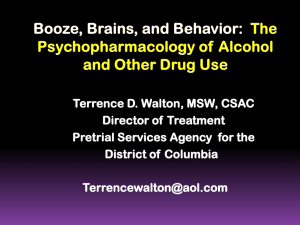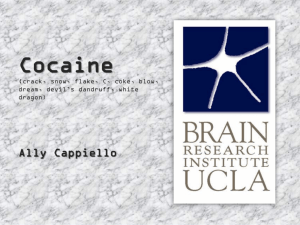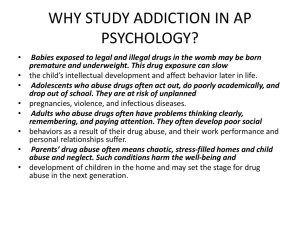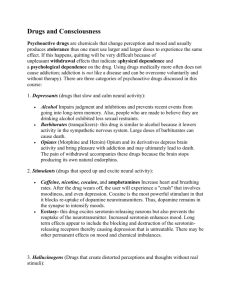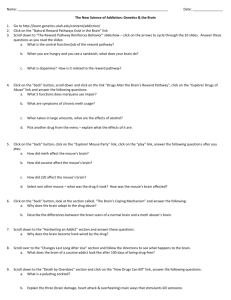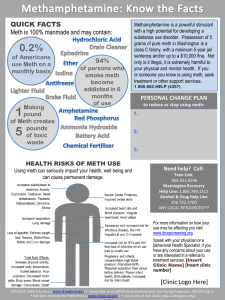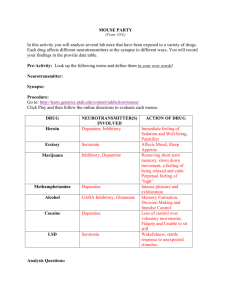The Neurobiology of Addiction
advertisement
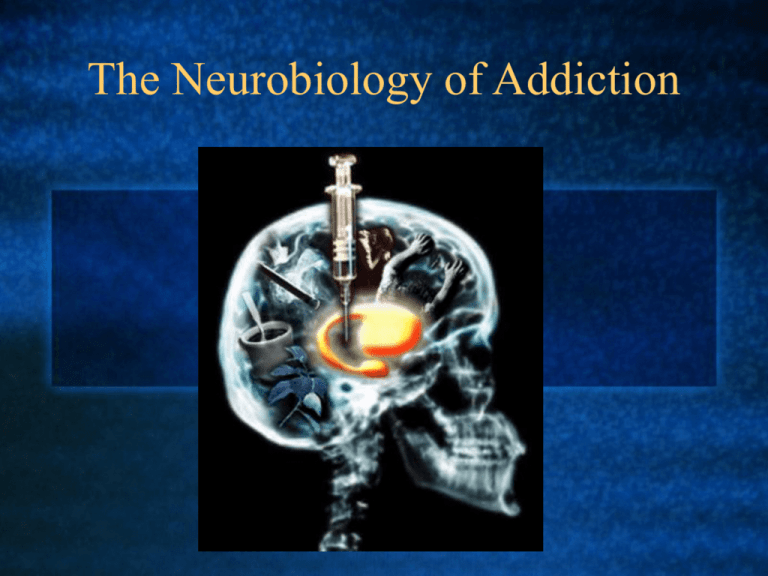
The Neurobiology of Addiction Physical vs. Physical addiction actually changes structure of brain Brain needs drug for “normal” function Permanent brain damage can occur Can begin after 1st use Psychological Users think they need it, but no true chemical need Bad habit, socially reinforced (marijuana, caffeine) Inside the brain: Brian cells called neurons send chemical messages Neurotransmitter chemical messenger Synapse - Space between neurons where neurotransmitters travel The Brain’s reward center Reward center is region of brain that responds to sensations of pleasure Dopamine naturally stimulates the reward center Many drugs simulate this process When things are going well… Neurotransmitter Dopamine is released, carries message, then re-enters original neuron for reuse Responsible for feelings of pleasure Designed to reinforce positive behavior (eating, sex, altruism, learning) When cocaine is present Cocaine blocks the reuptake of dopamine Synapse is flooded with dopamine, causing feeling of euphoria Long-term Damage? Long-term drug use results in loss of dopamine receptors Users report constant depression, sadness, feelings of hopelessness Need more and more of the drug just to feel normal Potential for “high” is gone Meth Brain Damage Meth Brain Damage The limbic region, involved in drug craving, reward, mood and emotion, lost 11 percent of its tissue. "The cells are dead and gone," Dr. Thompson said. Addicts were depressed, anxious and unable to concentrate. The brain's center for making new memories, the hippocampus, lost 8 percent of its tissue, comparable to the brain deficits in early Alzheimer's. The methamphetamine addicts fared significantly worse on memory tests than healthy people the same age. The faces of Meth And finally…Meth Mouth Meth users feel incredibly sexy because of the high They actually deteriorate very quickly due to their fixation on the drug and its harmful effects
